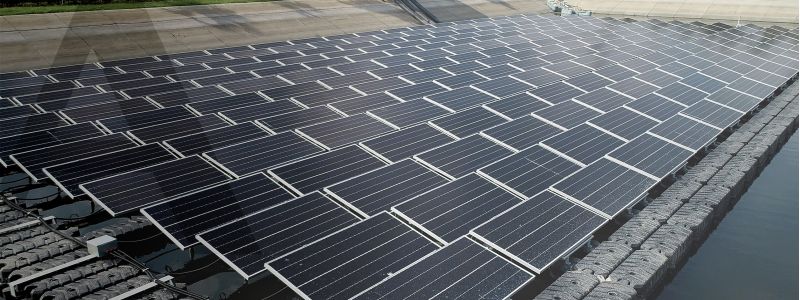AMATA Sustainable Development Structure
The Company places the highest priority on the active participation of the entire organization in corporate sustainability development and has designated the Board of Directors, top management, and all employees to actively engage in driving the Company’s development in economic, social, environmental, and human rights aspects. These collective efforts aim to foster awareness and embed a strong sustainability culture within the Company, ensuring a holistic and integrated approach to corporate sustainability. The Company believes that its visionary and accountable Board of Directors and top management, who uphold good governance and demonstrate efficient, transparent leadership, along with executives and employees who integrate sustainability considerations and stakeholder impacts into decision-making, will drive continuous and meaningful progress and create sustainable value for all stakeholders.
To drive sustainable development, the Company has a sustainable development structure under the supervision of the Corporate Governance and Sustainable Development Committee, as follows:

The Company has established the AMATA Sustainable Development Committee, which comprises management from the departmental level upwards, and the AMATA Sustainable Development Working Committee, which includes representatives from all departments of the Company and its subsidiaries. These committees work collectively to implement sustainability initiatives. Additionally, the Corporate Strategy and Risk Management Office, which reports directly to the Chief Executive Officer, is responsible for monitoring all sustainability-related activities. This integrated approach ensures sustainability considerations are embedded in risk management and strategic planning for maximum effectiveness. Progress and performance are then reported in sequence to senior management and to the Board of Directors, fostering a coordinated effort toward the Company’s sustainability goals.
Sustainability efforts within the Company are carried out at three levels, covering economic, social, environmental, and corporate governance dimensions. The Company actively monitors and evaluates both internal and external risks, as well as shifting global trends and sustainability factors that may impact the Company and its stakeholders. The needs and expectations of all stakeholder groups are integrated into target-setting, strategy formulation, and action plans, enabling effective preparation and response to material sustainability issues.
Roles and Responsibilities of the Committee and Working Team
Board of Director
- Establish sustainable development policies, sustainability framework, strategies and targets covering economic, social, environmental and governance aspects.
- Oversee and provide advice and direction on appropriate responses to material topics and stakeholders' needs and expectations.
Sustainable Development Committee
- Implement the policies and strategies to achieve the set goals and targets.
- Monitor the progress of ESG implementation and its performance.
- The Chairman of the Sustainable Development Committee reports the Company's ESG performance to the Chief Executive Officer, and Board of Directors on a regular basis.
Sustainable Development Working Team
- Revisit and assess the sustainability factors in all aspects covering economic, social, environmental, and governance.
- Conduct materiality determination process.
- Initiate projects and guidelines to respond to material topics in all aspects.
- Deploy the Company’s policies, goals, and strategies, as well as knowledge of sustainable development, to all staff across the Company to support operations in every aspect.
- Follow up on the progress and performance evaluation of the projects, including data analysis.
- Prepare an annual sustainability report.
Sustainable Development Policy
Due to the nature of its business as a large-scale industrial city, the Company’s operations may generate both positive and negative impacts—directly and indirectly—on the economy, society, environment, and human rights, whether currently or in the future. Consequently, the Company has established a "Sustainable Development Policy" to demonstrate its firm commitment to operating ethically and responsibly toward society and the environment. This policy also serves as a strategic guideline for business development that supports Thailand’s economic growth while maintaining a harmonious balance between industrial zones and local communities, ensuring sustainable coexistence with a high quality of life. Through this approach, the Company aims to create long-term value for all stakeholders, aligning with its "ALL WIN" philosophy, as follows:
Demonstrating Organizational Leadership Commitment
The Company defines its sustainability strategy, Sustainability Management Framework, and short-, medium-, and long-term objectives in alignment with globally recognized sustainability principles and sustainable development goals. This framework provides a structured roadmap for implementation, driving progress across the organization, reinforcing accountability in sustainable development, and fostering transparent accountability in sustainable development.
Conducting Business with Integrity in Accordance with Corporate Governance Principles
The Company conducts its business with honesty, fairness, and integrity, adhering to legal and ethical standards while upholding its commitment to anti-corruption, human rights, and regulatory compliance. To ensure transparency and accountability, the Company has implemented robust governance frameworks, including risk management, audits, and internal controls, to drive long-term, sustainable value for all stakeholders.
Enhancing Business Value Through Innovation and Quality
The Company continuously improves operations and enhances product and service quality across the entire lifecycle by leveraging technology and innovation. At the same time, it fosters new business growth and innovation, creating added value for the organization and its stakeholders.
Upholding Human Rights in Employment
The Company is committed to upholding human rights standards in its employment practices, ensuring that all employees and workers are treated fairly and with respect. It embraces diversity, equity, and inclusion (DEI) by fostering equal opportunities and preventing any form of discrimination. Furthermore, the Company is dedicated to maintaining a safe and high-quality work environment in compliance with established labor and safety standards, while strengthening its corporate culture and investing in the continuous development of employees' skills and potential.
Promoting Stakeholder Engagement and Inclusivity
The Company is committed to minimizing or eliminating negative impacts on stakeholders, both directly and indirectly. It conducts comprehensive risk assessments and manages risks across the supply chain responsibly, ensuring compliance with international standards. Additionally, the Company supports the capacity building of employees, suppliers, business partners, and key stakeholders, equipping them with the knowledge and skills necessary for sustainable business practices. This approach fosters opportunities and long-term benefits for all stakeholders.
Elevating Environmental Stewardship and Resource Management
The Company is dedicated to maximizing resource efficiency and enhancing its ability to manage natural resources sustainably. It promotes the use of renewable and clean energy, develops environmentally friendly innovations and businesses, and manages environmental risks and impacts related to water, air, natural ecosystems, biodiversity, and climate change.
Respecting Community Rights and Improving Quality of Life
The Company is committed to respecting community rights and enhancing the well-being of workers and local communities in its operational areas. It promotes fair access to resources and encourages responsible resource use, while actively managing risks and minimizing negative impacts across the supply chain. Through ongoing programs and initiatives, the Company fosters community development, open dialogue, and stakeholder engagement, ensuring that business and local communities grow together in a way that creates lasting value for all.

Scan the QR code for more details on our sustainable development policy.
Besides the Sustainable Development Policy, the Company conducts an annual review and revision of other policies, management standards, and governance practices covering corporate governance, social responsibility, and environmental management. This process ensures that the Company's business operations remain aligned with internationally recognized sustainability frameworks and best practices. These include the Ten Principles of the UN Global Compact, which address human rights, labor, the environment, and anti-corruption; the United Nations Sustainable Development Goals (UN SDGs); the OECD Due Diligence Guidance for Responsible Business Conduct, which outlines corporate responsibility expectations in business operations; and the United Nations Guiding Principles on Business and Human Rights (UNGPs), which provide a framework for businesses to integrate human rights considerations into their operations and responsibilities.
The Company recognizes that a strong corporate culture is key to driving long-term sustainability. "AMATA DNA" serves as the foundation of this culture, embodying five core principles: Dependable – building trust through integrity and reliability; Responsive – acting with agility and adaptability; Innovative – fostering creativity and continuous improvement; Visionary – embracing a forward-thinking mindset; and Efficient – optimizing resources for maximum impact. These principles form the cornerstone of the Company’s long-term stability and sustainable growth.
Furthermore, the Company integrates sustainability into its business model by maintaining a balanced approach to stakeholder interests. By applying the Creating Shared Value (CSV) framework, the Company ensures that economic growth is achieved alongside positive social and environmental impact. This approach enhances corporate projects and business initiatives, delivering meaningful benefits for stakeholders while simultaneously creating long-term value for the Company.
Start
Building the Future
with AMATA

Start
Building the Future
with AMATA
Contact us for more details.
(+66) 38 939 007
(+84) 251 3991 007 (South)
(+84) 203 3567 007 (North)
(+95) 1 230 5627
(+856) 21 810007
(+856) 20 5710007 (Chinese)
(+856) 20 57550007 (English)
© AMATA CORPORATION PCL. All rights reserved. Web by Toneyes






